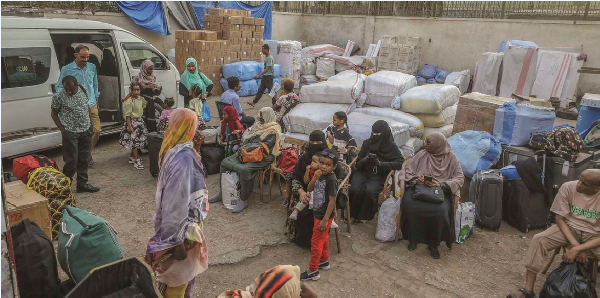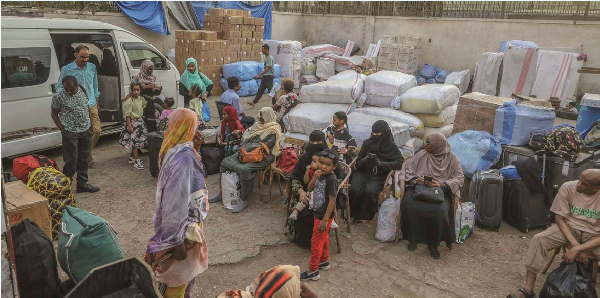
KHARTOUM, Aug 5 (NNN-AGENCIES) — More than 1.3 million Sudanese who fled the country’s two-year conflict are now returning home, prompting the UN to call for greater international aid to help rebuild their shattered lives.
Mamadou Dian Balde, UNHCR’s Regional Director for the East and Horn of Africa and Great Lakes, confirmed that returns have primarily taken place in the Khartoum, Sennar, and Gezira states, which were devastated by the war.
In recent months, more than a million internally displaced people (IDPs) have gone back to their homes, while an additional 320,000 refugees have crossed back into Sudan, mainly from neighbouring Egypt and South Sudan.
While that implies a reduced refugee burden on Egypt, it transfers the load on humanitarian agencies helping the displaced in Sudan, where the war has ravaged infrastructure and aid has been severely underfunded over the two-year war period.
Balde, who lived in Khartoum 24 years ago, said the capital had been especially damaged.
“It was devastating to see that place, home to such generous people, in such a state,” he said. “The city was completely destroyed. It was really heart-breaking.”
Despite a reduction in fighting in these areas, especially after the military recaptured the city from rival Rapid Support Forces (RSF), conditions remain perilous. In fact, the military government itself temporarily relocated to Port Sudan from where it operates.
Public infrastructure—including power lines, roads, and drainage—has been completely destroyed. Schools and hospitals lie in ruins or have been converted into shelters. The loss of civil documents makes it impossible for people to access what few services remain. On top of this, unexploded ordnance, sexual violence, and violations of children’s rights are widespread.
Balde noted that while signs of life are returning, basic services such as water, electricity, healthcare, and education are non-existent.
“The government isn’t providing any services, but people are starting to resume their lives, and they need support,” he said.
“I travelled to the border with Egypt and met people returning empty-handed,” he said. “They use whatever means they can to get there and they have nothing. It’s really sad to see them come home and travel 1,200 kilometres from the border to Khartoum.”
UNHCR’s cash-based intervention programme at the Wadi Halfa border has supported over 3,000 vulnerable families with transport costs, but the programme is sadly coming to an end. Balde clarified that while funding has not been cut, it has decreased, and he is advocating for more support.
Humanitarian needs in Sudan and neighbouring countries have never been met since the UN started sending out urgent appeals when the war between the military and RSF broke out in April 2023. Aid agencies said they have received just about a quarter of the $4.2 billion they need for operations in Sudan. The donations have reached 16 percent of the money needed to support Sudanese refugees in Egypt, Chad, South Sudan and Ethiopia. These countries need about $1.8 billion to serve the estimated 4 million refugees.
Yet Sudan itself hosts nearly 882,000 refugees and 11 million internally displaced people.
“The people of Sudan have suffered enough,” Balde said, calling for a political solution to achieve lasting peace and recovery.
The conflict began in April 2023 as a power struggle between army chief Abdel Fattah al-Burhan and Mohamed Hamdan Daglo, commander of the paramilitary Rapid Support Forces (RSF). This week, the RSF formed a parallel government, a decision condemned by the army and its allies abroad.
The army now controls most of the Sudanese territory in central, northern, and eastern Sudan, while the RSF holds most of the western Darfur region. The southern region of Kordofan has become the primary battleground in recent weeks. It was unclear when and where the RSF will actually establish its administration. A statement the rebels published named ‘governors’ for regions, including those not under the RSF control.
UN Secretary-General António Guterres has described the civil war as “vicious and horrifying”, stating that “the war has unleashed hell for millions of ordinary people… The violence needs to stop.” — NNN-AGENCIES





